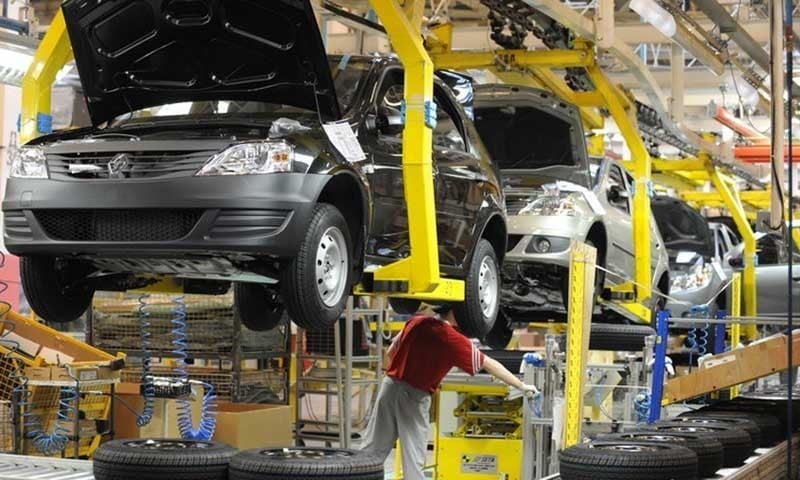
One of the biggest business conglomerates, the Nishat Group, has announced recently that it will make inroads into Pakistan’s fast growing automotive industry and has signed an agreement with South Korean carmaker Hyundai Motor Company for the production of hybrid cars.
This and other such developments come in the backdrop of the new Automotive Policy 2016-21 unveiled by the government in March last year. Sensing intense competition with new market players who have got incentives in the auto policy, existing auto assemblers have also brought new models and announced investment plans.
The Nishat Group had made up its mind in 2012 to enter the auto sector, but lack of incentives for fresh investments prevented it from initiating any venture.
“We attempted to venture into the automotive sector back in 2012, but the policy at that time was not favourable,” recalled Norez Abdullah, Chief Financial Officer of Hyundai Nishat Motor Limited in an interview with The Express Tribune.
“The auto policy has brought incentives for the new players based on which we have decided to enter this segment; Hyundai approached us and now we have started the new venture,” he said.
The group intends to introduce hybrid electric cars in Pakistan, but infrastructure for the new technology is too costly. At present, Abdullah said, both the partners were conducting a feasibility study to assess the scope of hybrid electric cars in Pakistan.
“Hyundai has already introduced hybrid electric cars in US markets. We wish to introduce the same variant “Ioniq” in Pakistan as the market for such cars is expanding here and people do not have much choice right now,” he said.
“Currently, we are trying to convince our partner about the potential, but technical issues have yet to be resolved as the technology is exclusive, however, importing such a variant will always be an option.”
The Nishat Group is pouring an investment of around $120 million into setting up an assembly plant near Faisalabad. Both the joint venture partners have yet to decide from which model to start.
“We will produce fuel-efficient engines with price competitiveness to fare well in the market. At present, we are conducting consumer surveys and then we will decide whether to start with 800cc or 1,000cc engine category,” Abdullah said.
The economics of 800cc category was very complicated as it might be popular from the consumers’ point of view, but its profit margins were not attractive, he said.
The company’s low-end model has not yet been decided, but it is eager to introduce a sports utility vehicle (SUV) as a high-end model. It price range will be somewhere between the prices of variants made by the existing Japanese car manufacturers.
Apart from this, the company will try to take advantage of the group’s diversified background in banking and insurance.
“Nishat is a very diversified group in banking and insurance, which have a lot of connection with auto. We felt that the group has an edge to emerge as a major market player on the strength of these two pillars,” Abdullah said.
Talking about its partner Millat Tractors, which would have around 18% stake in the new company, Abdullah said Millat had a good track record of developing local vendors and overall it had achieved over 90% localisation (use of local auto parts).
“We want to take strategic advantage with this partnership as we have to achieve maximum localisation in five years, otherwise we will have to pay from our pockets.”
Abdullah said once the feasibility studies and market surveys were completed, they would start construction of the assembly line. “Within two years, we will roll out our first variant in the market,” he declared.
Published in The Express Tribune, June 1st, 2017.
Comments
Post a Comment